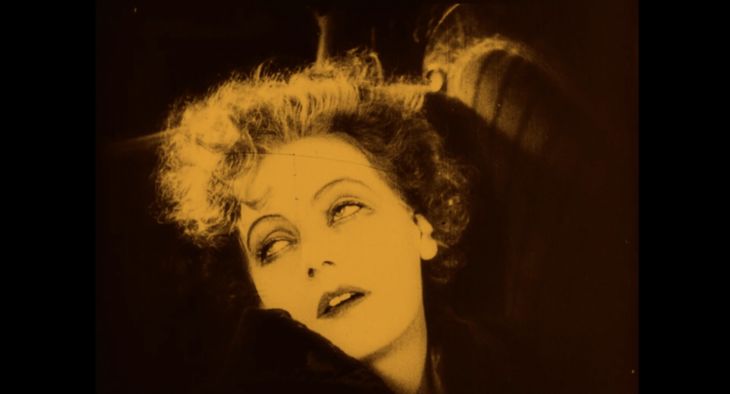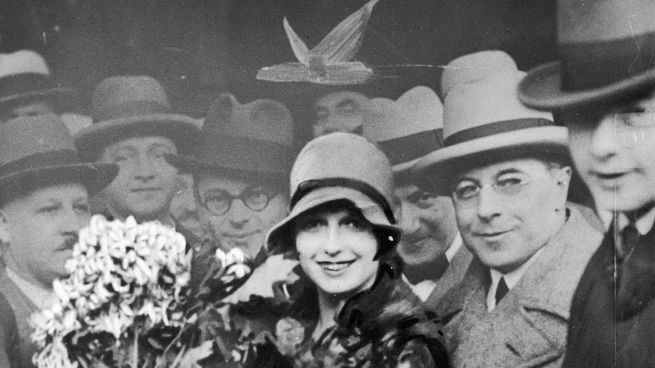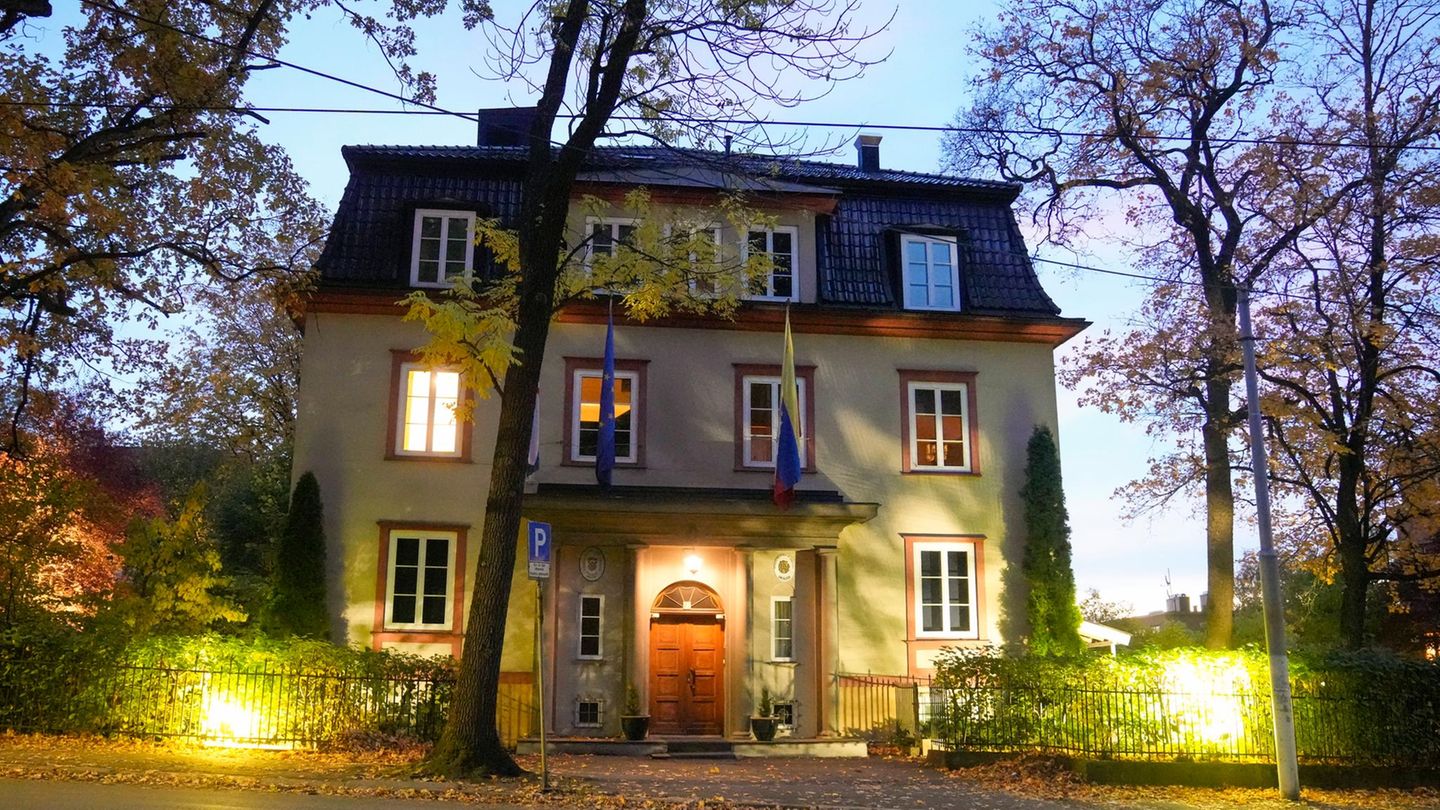We were during the Bafici with Angela Christlieb, director of “Pandora’s Legacy”, a film about GW Pabst and his wife Trude. The secrets of a creator of masterpieces but accused of collaborationism
“Today the image of a heroic feminist sells more, and Trude Pabst was the complete opposite. That’s why it was very difficult for me to get credits to make a film about her, her dreams and memories that she wrote in her notebooks, her husband and the love letters that they dedicated to each other over 40 years.”. Who is speaking is Angela ChristliebAustrian artist who was a member of the main jury of the recent Bafici and presented the result of her struggle there, “Pandora’s Legacy”.
The content you want to access is exclusive to subscribers.
Actress, born Gertrude Henningssurname that he abandoned when he married, True was the director’s wife George Wilhelm Pabstman as admired for his works as criticized for having continued working in Nazi Germany instead of escaping to the US like others. The Lugones Room exhibited four of his films: “The tragedy of the mine”, “Four Infantry”, both of a pacifist nature, “The three-cent opera” (there you hear the original version of “Moritat”by Lotte Lenyawhich they then did Louis Armstrong, Sinatra, Ella Fitzgerald and many others) and “Lulú, or Pandora’s Box”starring Louise Brookswith his false amoral innocent face and his helmet-style hairstyle, a figure that inspired the cartoonist Guido Crepax and thousands of other desperate men.


Angela Christlieb corroborates that GW Pabst had an affair with Louise Brooksbut it was for good reasons: he wanted to improve his sex life with his wife, and Louise He offered him a semester of in-person classes. But he first starred in another by Pabst, “Diary of a loss”. In his long career, he led the legendary Asta Nielsena very young woman Greta Garbo (photo), the hieratic Briggite Helm, Leni Riefenstahl the mountaineer, then director, Micheline Presle (died last February at 101 years old) and a few other beauties “in stories of modern, liberated women, but he held his wife down quite a bit”.
Greta.jpg

She appears in “Atlantis” as a friendly journalist, but the man-killer of the story, filmed in the Sahara, is Brigitte Helm (literally, she is the queen who seduces lost travelers and/or has them killed). One way or the other, True I was happy. She was fascinated by knowing the Sahara and riding a camel. Her husband always took her to the countries where she had to film: France, Tunisia, Syria, Indochina, USA, Italy. In Los Angeles she wanted to open a boutique so he could stop working. Something would be bothering him, because years later she wrote a script, which he filmed, “Mysterious shadows”, about a man so absorbed in his work that his girlfriend decides to marry another (and only then wakes up). In any case, the couple remained together, and he continued working until he was old.
They were only a few months away from 1945, the last of the war, when he was filming a police crime in Berlin about the theft of a Stradivarius and she was left waiting for him in a safer place. And here comes the controversy: What was Pabst doing working in Nazi Germany? According to the family, he was working in Paris (for example, “The white slave”about a Western woman married to a Muslim who takes her to his land), but her father-in-law died, they had to go to the funeral in Germany, and when the couple wanted to escape with a boat ticket purchased via Austria-Italy, the boat could not go out. Goebbels located him and sent him a telegram ordering him to “work for the great national socialist cause”.
Forced to talk to the Nazi minister, Pabst He told him that he was not planning to make propaganda films. That said, “I was afraid they would stop me when I left the office,” he told his wife. Instead, they let him make two biopics of old figures: the actress and theater entrepreneur Karoline Neuberfrom the 1700s, and the doctor Paracelsus, who in 1500 confronted his colleagues by proposing the use of the gypsy pharmacopoeia. This detail escaped Goebbels, because under the Nazi regime the gypsies suffered the same fate as the Jews. A third film, “The Molander case”police, ended just when the Russians arrived, and was never heard from again.
Pabst He was not the only prestigious director who worked under the Nazi regime. They also stayed Helmut Kautner, Josef von Baky, Wolfgang Staudte and others good. But they continue to accuse him of being a collaborationist, even though he helped several Austrian Jews escape, and later he did truly anti-Nazi works, such as “The process” (anti-Semitism in a village), “The voice of silence”, “The last act” (the fall of Berlin) and “It happened on July 20”. Now his grandchildren are preparing a book in his defense.
Pabst died in 1957, True in 1993, already old, wrapped in her memories. One son (there were two) donated her parents’ letters to the Berlin Cinematheque. A grandson kept the notebooks where his grandmother wrote down her dreams and thoughts. There are three grandchildren: a paleontologist, a musician and an entomologist dedicated to butterflies. About those three, and those notebooks, Christlieb put together his “Pandora’s Legacy”, connecting them with fragments of grandfather’s films, in a kind of subconscious association, which is natural, considering that it was he who, with “The mysteries of a soul”1926, introduced this type of associations into cinema, with their logical psychoanalytic interpretations (he was guided by two assistants from Freudand they imitated him Hitchcock and Buñuel).
Source: Ambito
I am an author and journalist who has worked in the entertainment industry for over a decade. I currently work as a news editor at a major news website, and my focus is on covering the latest trends in entertainment. I also write occasional pieces for other outlets, and have authored two books about the entertainment industry.




